Every parent who has travelled with kids is well aware of the challenges. Solid planning and preparation are essential to a parent’s ability to retain their sanity during air travel and maybe even enjoy the experience.
A little bundle of joy doesn’t have to mean the end of your dreams to use your points for premium class travel, though. The difficulty, however, is deciding which airline, flight, or even type of aircraft is best for infants – and subsequently finding the right seats for the best price.
This guide covers travelling with children and infants in Australia with major domestic airlines. For international travel, check our dedicated guide here.
This article is intended as a guide only. All information provided is relevant to Australian domestic flights, and guidelines may differ for international flights. We recommend contacting the airline directly for specific information.
What do airlines mean by infants?
Infants have a specific definition in the world of airline tickets – in short, they are children under two years old. They don’t get their own seat, but share one with their accompanying adult and a special infant extension seatbelt. Priority access to bassinets can be requested where available. Infant fares are often complimentary, but this varies across airlines.
Kids over the age of two are classed as ‘children’ and require their own seats. In terms of pricing, child tickets are virtually identical to standard adult ticket pricing with cash and points. Specifically for reward seat redemptions, children over two will need availability for their seat, and pay full points and taxes.
Some ambiguity can occur where the child is less than two when their trip starts but turns two while they are away. That scenario is treated differently by different airlines. However, it’s safest to assume that if an infant turns two during their trip, they will be treated as a child on the return journey and will require a full ticket.
Qantas American Express Ultimate
Flying on Qantas with infants and children
Infants
Qantas defines an infant as ‘any child under two years old at the time of travel’, aged up to and including 23 months. Infants not occupying a seat travel free of charge on Australian domestic flights and do not require a ticket. A ticket is required if an infant occupies a seat and for all international travel.
No fare or additional taxes are required for lap infants when flying on a QF-coded flight. This means that infants not occupying a seat don’t require a ticket when flying domestically, and can travel on their parent’s ticket. Infants occupying a separate seat need their own ticket.
Bassinets are only available on Qantas Airbus A330 aircraft (mainly flights to/from Perth). There are two in the Business cabin, and two in Economy. These cannot be booked in advance, but can be requested at check-in, subject to availability. Bassinets are not available on Boeing 737 aircraft, which make up the bulk of Qantas’ domestic flights.
Baby meals can be requested on selected flights via Manage Booking after logging into your Qantas Frequent Flyer account. The airline may be unable to accommodate special dietary requirements, so it’s recommended that you bring your own baby food for the flight.
There is no extra general luggage allowance, but infants are permitted up to three ‘infant items’ up to 32kg each (i.e. collapsible stroller, cot or car seat). No extra carry-on allowance is given either, but parents can carry enough nappies and other baby supplies onboard in addition to their usual allowance.
Children
Children above the age of two years must pay the same full adult fare on domestic Qantas flights, whether that be in cash or using Qantas Points.
Special meals for children can be requested via Manage Booking on the Qantas website. Consider bringing your own meal for the flight if your child has dietary requirements.
Since children over the age of two pay the full adult fare, they also get the full standard adult allowance. In addition, children can also check-in up to two ‘child items’ up to 32kg each (i.e. car seat or collapsible stroller).
For more information on flying with children, visit the Qantas website.
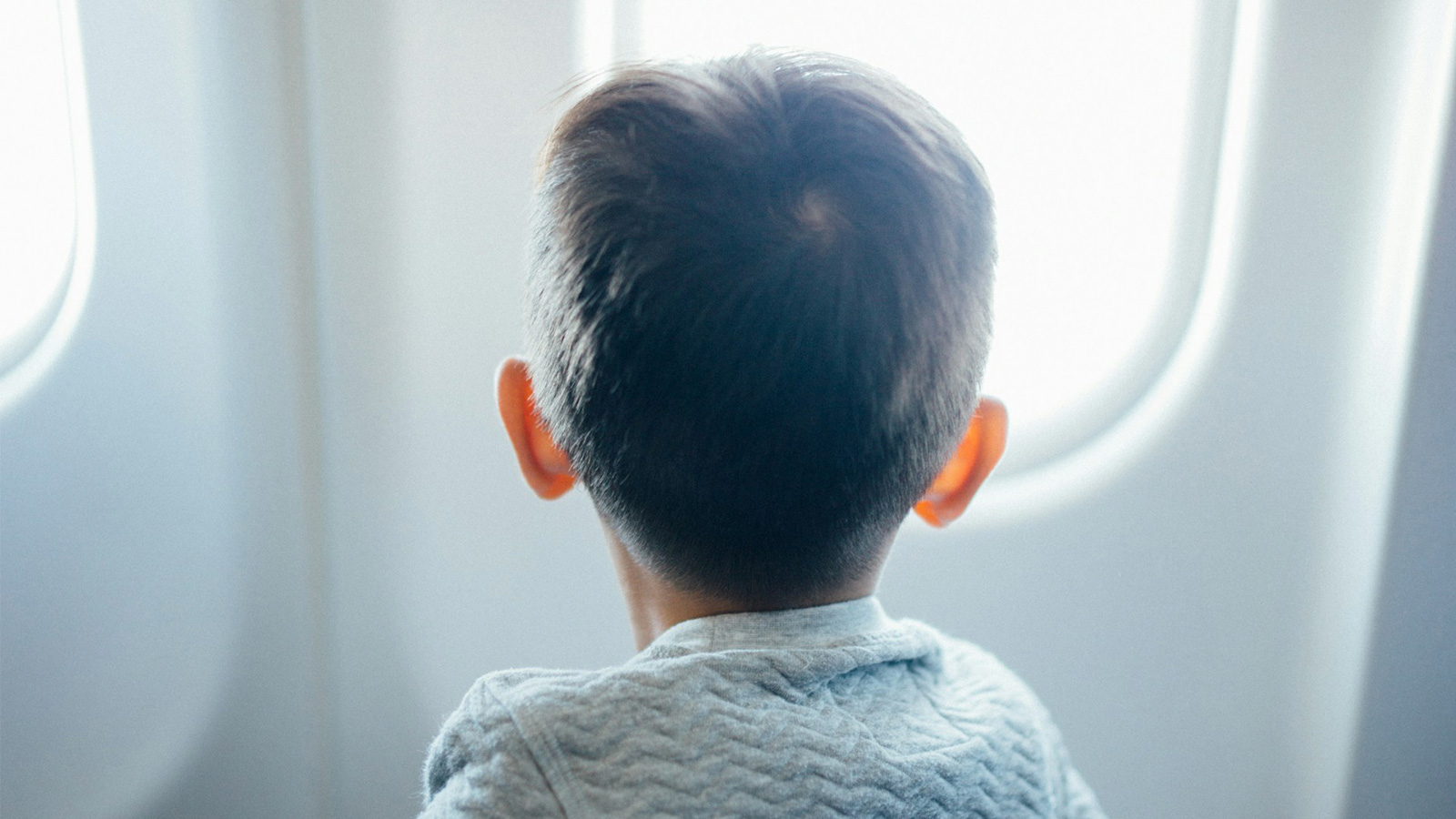
Flying on Virgin Australia with infants and children
Infants
Virgin Australia defines an infant as any child 23 months of age or younger. No fare or additional taxes are required for lap infants, who can also travel on their parent’s ticket domestically. But infants occupying a separate seat need their own ticket, which is charged at the full fare.
Virgin Australia’s domestic fleet is primarily made up of Boeing 737 aircraft, which do not have bassinets.
Parents with infants can check in up to three ‘special infant items’, like a collapsible stroller, cot or car seat. This applies to all fare types (Lite, Choice, Flex and Business). Additionally, parents can also bring an extra 7kg of hand-carry baggage for the baby’s needs (i.e. baby milk, baby food, disposable wipes, etc.)
Children
Children above the age of two years must pay the same full adult fare, whether that be in cash or using Velocity Points.
Since children over the age of two pay the full adult fare, they also get the full standard adult baggage allowance. In addition, children can also check-in up to two ‘special equipment items’ up to 23kg each (i.e. car seat or collapsible stroller).
Virgin Australia does not provide complimentary meals in Economy, so you should bring food for your baby or child.
For more information on flying with children, visit the Virgin Australia website.
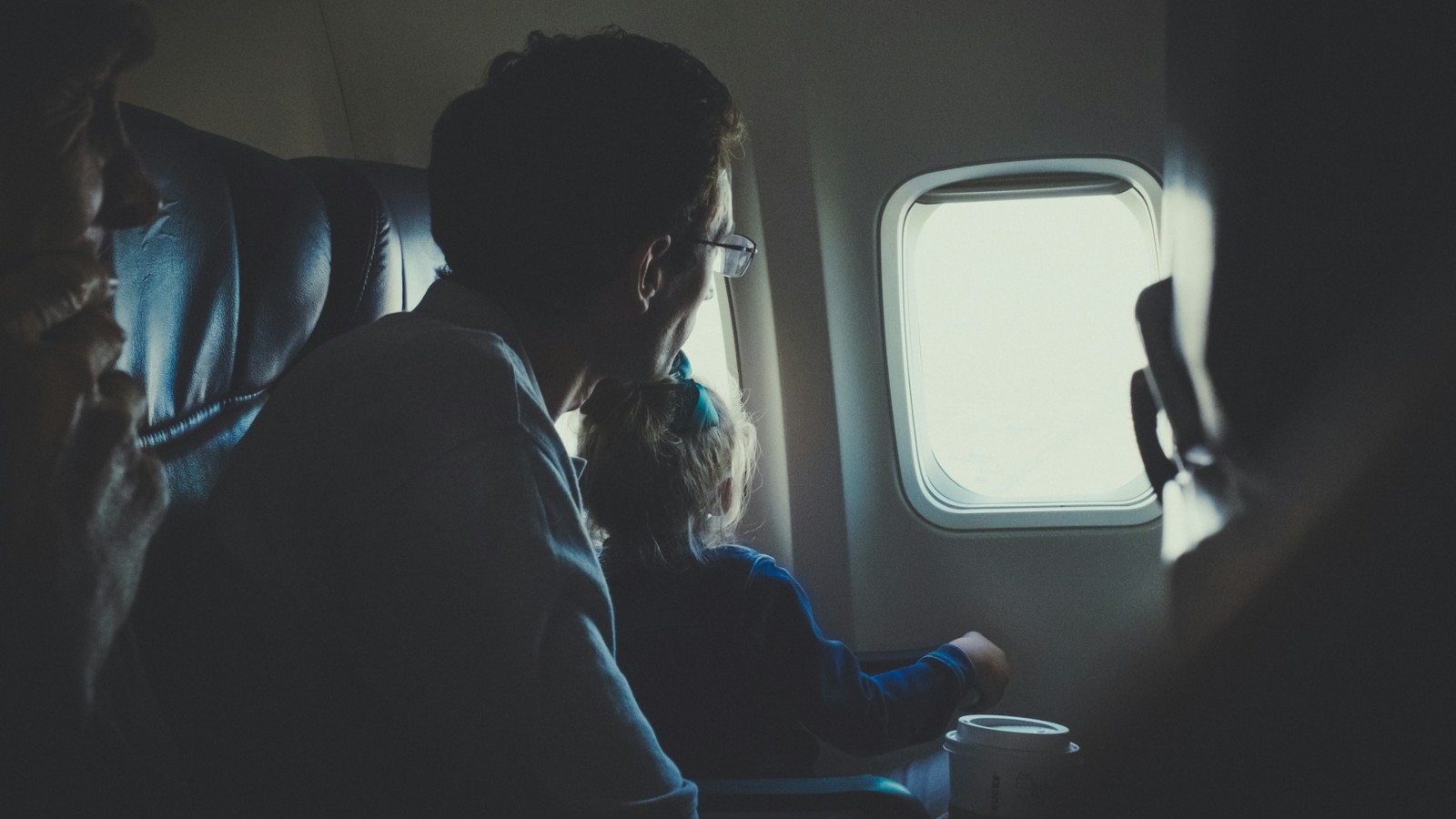
Flying on Jetstar with infants and children
Infants
Jetstar defines an infant as any child under two years of age. Their policy is quite lenient when it comes to a child turning two during a trip. Provided both flights are on the same booking, they can still be treated as an infant on the return flight and won’t need their own seat. If the bookings were separate, then the child would require a full fare for the return flight.
Jetstar charges a $35 fee per infant per flight on domestic sectors. So, for connecting flights, you’ll pay the fee per flight – not for the entire journey. International flights attract a higher fee, so keep this in mind if your itinerary includes domestic and international flights.
The good news is Jetstar’s infant fee covers a special check-in allowance. Any or all of the following items can be checked in: a pram, a stroller, a portable cot and/or a highchair. Oversize fees will be waived, and these items are included above your normal check-in allowance.
Unfortunately, having an infant does not entitle you to any additional carry-on allowance. Anything you need for your baby during the flight, like baby food, nappies or wipes, will have to be carried as part of your own allowance. You may want to consider purchasing a Jetstar Flex bundle, which gives you 14kg carry-on baggage, or purchasing additional carry-on baggage.
Bassinets are not available on any Jetstar domestic flights, but can be requested on some international flights.
Jetstar’s in-flight menu does not include any baby food, so you should bring enough for your journey.
Children
Children above the age of two years must pay the same full adult fare, whether that be in cash or using Qantas Points.
Since children over two years old pay the full adult fare, they also get the standard adult allowance, if applicable. Remember, Jetstar Starter Fares don’t ordinarily come with baggage allowance unless purchased, or a bundle is added.
For kids, there’s a selection of snacks and small bites onboard Jetstar domestic flights. You can even purchase a kids’ activity pack – which includes an activity book and crayons – or add it to a food combo.
For more information on flying with children, visit the Jetstar website.
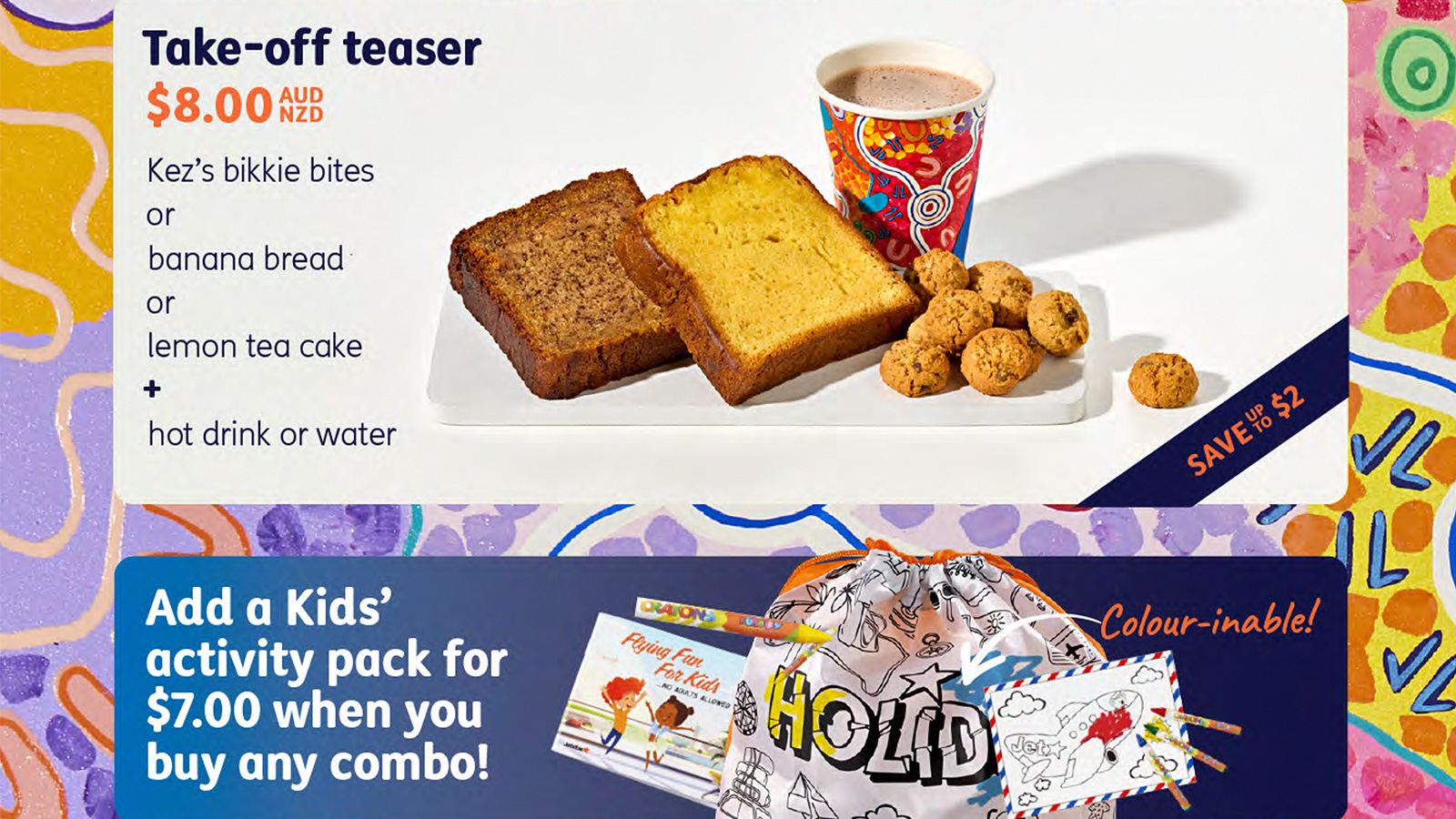
Also read: Jetstar Airbus A321neo Economy Max Bundle (Perth – Melbourne)
Summing up
It’s great to see that all major Australian airlines have special concessions and policies when flying with infants and children. It certainly takes the edge off the stress of flying, with all the extra gear to carry.
Unsurprisingly, Qantas and Virgin Australia have better infant and children policies for domestic flights, particularly with check-in luggage limits. They also carry lap infants for free, compared to Jetstar’s $35 fee per flight.
For specific queries or concerns about flying, we recommend visiting the airline’s website or contacting the airline directly.
This article was originally written by Evin Tan Khiew. Featured image: Paul Hanaoka, Unsplash.
FAQs
Do I need a birth certificate to travel with a baby in Australia?
For Australian domestic flights, there is no law saying you need to carry a birth certificate. However, all airlines require you to bring proof of age and identification for the infant. This can include birth certificate extracts and immunisation records. For international travel, proper documentation including passports and visas are required as normal.
What do you need to fly with a baby?
It’s recommended you carry everything your child needs for the duration of the flight plus a bit more, in case there are delays or cancellations to your trip. Personal items and medications that can’t be easily replaced are best carried in hand luggage. Bulkier items like strollers need to be checked in, and it’s advisable to have them covered by travel insurance.
Can I book a child seat for an infant?
Airlines do not supply child seats for infants. If your child is booked in their own seat but cannot sit upright, then they will need to be fitted into an appropriate car seat. All airlines have differing policies in this regard – it is best to call them and book well in advance. Your infant will require a separate seat and will likely have to pay full fare.
What age can babies fly for free?
In general, infants 23 months of age and under can fly for free on domestic flights with Qantas and Virgin Australia, with an accompanying full fare adult (regardless if the flight was booked with cash or points). Jetstar charges a $35 fee per infant per sector, but there is no requirement to purchase a full-price ticket for the infant.
Do infants earn frequent flyer points?
Infants travelling for free on Qantas or Virgin Australia do not earn frequent flyer points as they don’t have a fare. Points can only be earned if your infant has their own full-fare seat.
Stay up to date with the latest news, reviews and guides by subscribing to Point Hacks’ email newsletter.

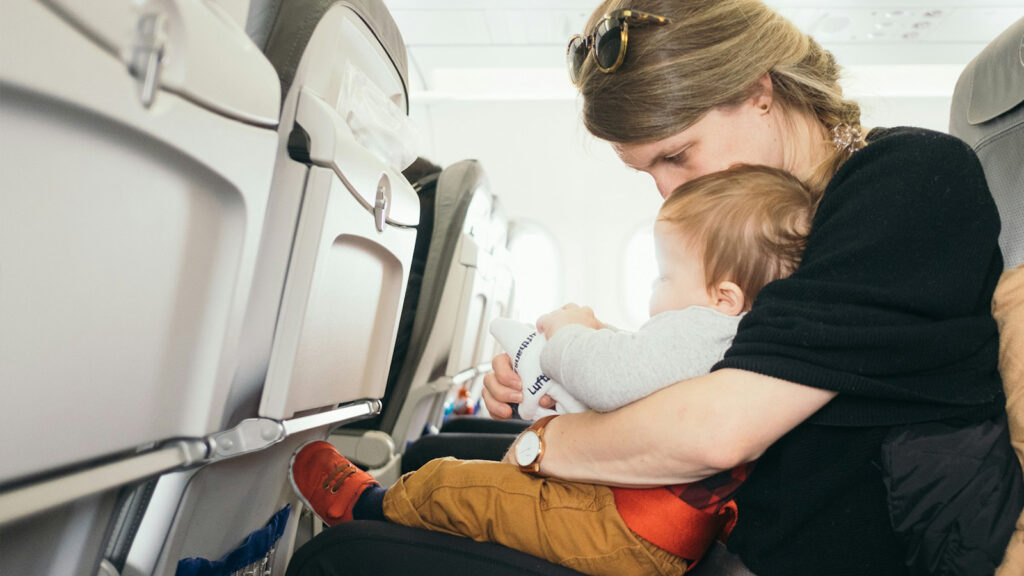

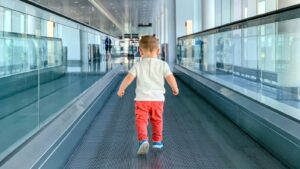
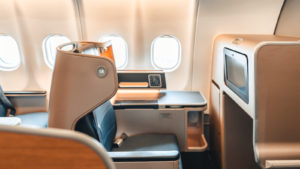
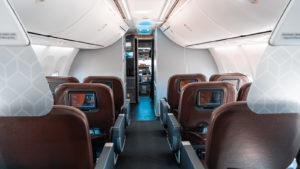
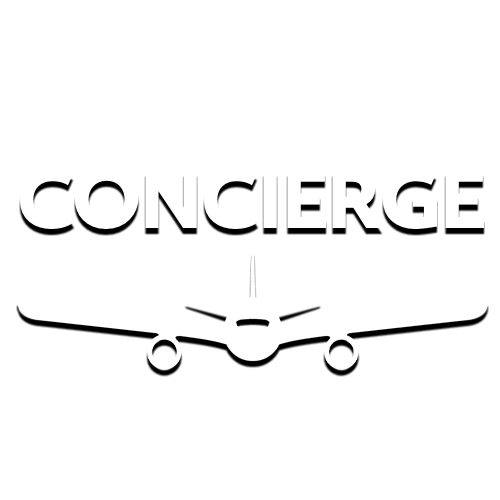
Strangely when I called SQ to add an infant, the operator doesn’t sounds like knows what he is doing and quoted me $291 AUD for the infant plus $4 merchant fee, he also quoted SGD 355 which turns out more expensive. I was online for a long time with him but have to hand up as I was late for a meeting. When I called back 2 hours later, a lady quoted me around $400 AUD or $370 SGD. I told her I’ve been quoted $291 AUD just 2 hours ago, after around 5 mins back and forth, she asked if I’m happy with $291, I said yes & payment was processed.
I’m surprised to find out there is such a big gap for this lack of transparency infant ticket…
I flew to Asia and back in Business Class using AA purchased points a while back, on 2 different partner airlines.
The booking process is easy, just find the dates with the seats you want, and book online or call up if can’t be done online (e.g. CX flights).
The cost of the infant though was slightly tricky. It was essentially 10% of the revenue ticket equivalent, and is priced at the date you request to add an infant. This is tricky as you can’t easily find out what the revenue ticket equivalent would be if you were flying on a partner airline, as the online search engine would only ever give you AA coded flights. Essentially I had to rely on Google Flights as a reference, and called up to see what the agent worked it out as.
Long story short, I used 160k AA points for 2x award J roundtrip, plus paid USD$832 for the infant addition, for my trip to a north Asia destination. For reference, the cheapest paid ticket for my itinerary in Business Class was quoted at around AUD$11k, so I guess what I was charged for the infant addition was fairly close to “10% of revenue ticket”.
Was it worth it in the end? Probably. I got a good amount of shut-eye, while wife looked after the little monster. At least she could stretch out her legs while wrangling the baby!
That’s what I was hoping too read about
That’s a great suggestion. Obviously when purchasing points your milage may vary (pardon the pun) and that introduces and extra few levels of complicity. Things to then consider would be cost of purchasing points, available purchase sales and the right times to purchase.
This can certainly be a complex game.
Thanks for your feedback!
Do you what airlines let your baby turn 2 before the flight home eg turn 2 when you are away?
It’s worth checking each airlines policy more closely before you look to make a redemption. Qantas & Virgin however being the local carriers definitely require a child to be under 2 to be classed as an infant each time they board.
My calculations are based on straight out award redemptions and not upgrades. So if you were looking to redeem a Business or First Class flight from the outset.
Hope this clears things up.